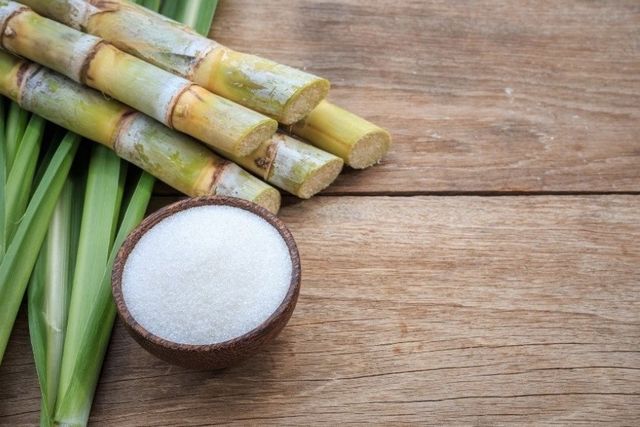The Trip of Cane Sugar Processing: From Harvest to Crystals
Wiki Article
A Thorough Overview of the Health and Economic Effects of Walking Stick Sugar Processing on Neighborhood Neighborhoods
Cane sugar handling plays a crucial role in forming the economic landscape of neighborhood areas, using work possibilities and promoting supplementary markets. The health and wellness implications connected with high sugar usage can not be neglected, as they contribute to rising prices of weight problems and diabetes.Economic Advantages of Walking Stick Sugar Handling
Walking cane sugar processing provides considerable economic benefits that prolong past the immediate agricultural market. The cultivation and handling of sugarcane produce various work chances, from farming to manufacturing and circulation. This work generation not only supports regional economic situations but likewise promotes community development by offering steady earnings sources for family members.Furthermore, the sugar market boosts supplementary organizations, including transport, tools supply, and packaging services (Cane Sugar Processing). As these fields grow, they contribute to an extra durable economic structure, boosting overall area durability. The export capacity of processed cane sugar additionally enhances financial advantages, positioning areas as affordable players in international markets
Investment in modern processing centers can lead to enhanced efficiency and efficiency, therefore decreasing waste and enhancing resource usage. This change not just benefits the local economic situation however likewise sustains sustainability initiatives by lessening ecological impacts.
Furthermore, the revenue created from cane sugar processing can be reinvested in regional infrastructure, education and learning, and medical care, advertising alternative area development. In general, the financial advantages of cane sugar handling are complex, supplying a structure for enduring success in farming regions.
Wellness Threats Connected With Sugar Usage
Excessive sugar consumption postures significant health dangers that warrant serious interest. High consumption of sugarcoated, specifically from processed beverages and foods, has been linked to countless wellness difficulties. One of the most pressing worries is obesity, as sugary diet regimens contribute to an increased calorie intake without providing necessary nutrients. This unwanted can bring about metabolic problems, including kind 2 diabetes mellitus, which has actually ended up being increasingly common in both grownups and kids - Cane Sugar Processing.Additionally, high sugar consumption is related to heart disease. Raised blood sugar level levels can bring about insulin resistance, a precursor to different heart-related concerns. Furthermore, sugar can have damaging impacts on oral wellness, leading to cavities and periodontal disease, as microorganisms in the mouth flourish on sugar, generating acids that wear down tooth enamel.
Additionally, emerging study recommends a possible web link in between high sugar consumption and psychological health and wellness problems, such as clinical depression and stress and anxiety. As areas grapple with these health and wellness risks, it ends up being vital to promote awareness and encourage healthier dietary selections. Resolving sugar consumption is essential not only for specific health and wellness but also for the overall wellness of regional neighborhoods, emphasizing the requirement for comprehensive public health and wellness approaches.
Ecological Effects of Sugar Manufacturing
Frequently ignored in discussions concerning sugar's implications is the considerable ecological influence of sugar manufacturing. The farming of sugarcane often demands extensive land usage, bring about deforestation, loss of biodiversity, and disruption of local ecological communities. The conversion of forests and wetlands right into sugar haciendas can result in habitat destruction, harmful various types and altering eco-friendly balance.In addition, sugar manufacturing is resource-intensive, consuming substantial amounts of water for watering. This can cause depletion of neighborhood water resources, adversely affecting both farming methods and area access to tidy water. Additionally, the use of chemical fertilizers and pesticides in sugarcane farming can add to soil degradation and water contamination, as runoff from these chemicals goes into neighboring rivers and lakes, affecting aquatic life and human health and wellness.
The ecological footprint prolongs to the handling phase, where power usage and waste generation more worsen ecological problems. Air contamination from burning sugarcane areas, in addition to greenhouse gas discharges, add to environment change. As such, the environmental implications of sugar production warrant severe factor to consider, urging stakeholders to take on more lasting practices to reduce these adverse effects on neighborhood ecosystems and communities.
Work Development and Area Development
The environmental challenges postured by sugar manufacturing are commonly reversed by its capacity for economic benefits, particularly in job production and area advancement. The cane sugar market acts as a considerable resource of work in numerous rural locations, giving use this link jobs throughout numerous skill degrees, from agricultural labor to processing and distribution roles. This work not only sustains individual families however additionally adds to the general financial vitality of neighborhood areas.In addition, the facility of sugar handling centers boosts ancillary organizations, such as transportation services, equipment supply, and upkeep carriers. As these businesses grow, they develop extra jobs and bolster regional economies. The earnings generated from the sugar industry likewise brings about raised tax obligation profits, which can be reinvested right into neighborhood solutions such as infrastructure, health care, and education advancement.
Moreover, the sugar industry usually takes part in area go right here development campaigns, such as supporting regional schools and health and wellness programs, thereby enhancing the high quality of life for locals. By cultivating strong area connections and advertising financial development, the walking stick sugar processing sector plays an essential duty in uplifting neighborhood populations, making it an important component of lasting advancement strategies in sugar-producing regions.
Harmonizing Health and Economic Growth
In navigating the intricacies of cane sugar handling, a crucial challenge hinges on balancing health and wellness factors to consider with financial growth. The sugar sector significantly adds to regional economic situations by generating jobs, boosting relevant markets, and boosting tax obligation revenues. Nonetheless, the wellness ramifications connected with too much sugar intake can lead to persistent conditions such as excessive weight, diabetes mellitus, and cardiovascular issues, which can worry public health and wellness systems and decrease workforce efficiency.
In addition, regulatory structures can play a crucial duty in leading industry techniques towards more sustainable and health-conscious techniques. By cultivating cooperation between government bodies, wellness companies, and the sugar sector, communities can navigate look at here the dichotomy of health and economic growth, ensuring that the benefits of walking cane sugar handling are equitably shared while prioritizing public health and wellness.
Conclusion
In final thought, the handling of walking stick sugar provides both significant economic benefits and remarkable wellness dangers for regional areas. While it promotes task production and promotes local growth, the affiliated health concerns, particularly relating to weight problems and diabetes, demand a cautious harmonizing act. By advertising liable usage and investing in neighborhood education and lasting methods, it is feasible to make the most of economic benefits while decreasing unfavorable health impacts, consequently guaranteeing a much healthier future for neighborhood populaces.Furthermore, sugar can have detrimental effects on dental health, resulting in cavities and periodontal disease, as germs in the mouth flourish on sugar, producing acids that deteriorate tooth enamel.
Dealing with sugar usage is essential not only for individual health and wellness however likewise for the general well-being of neighborhood communities, stressing the demand for comprehensive public wellness approaches.
Often overlooked in conversations regarding sugar's implications is the significant environmental effect of sugar manufacturing. The wellness effects associated with excessive sugar intake can lead to chronic conditions such as weight problems, diabetic issues, and cardiovascular problems, which can burden public health and wellness systems and diminish labor force performance.

Report this wiki page